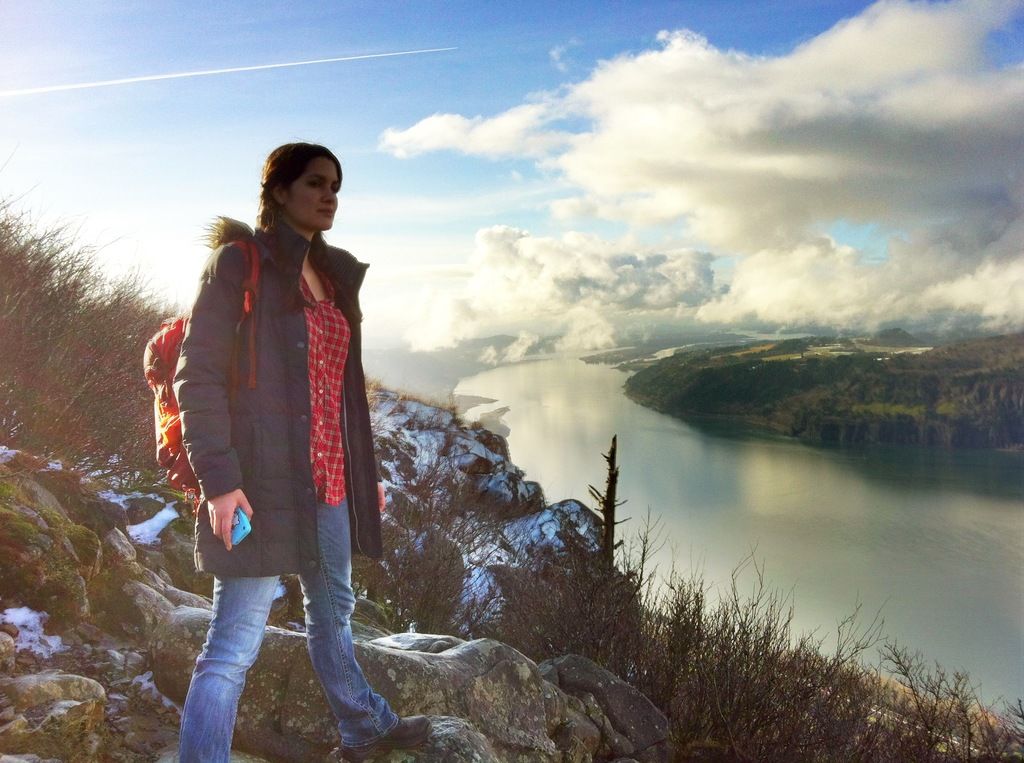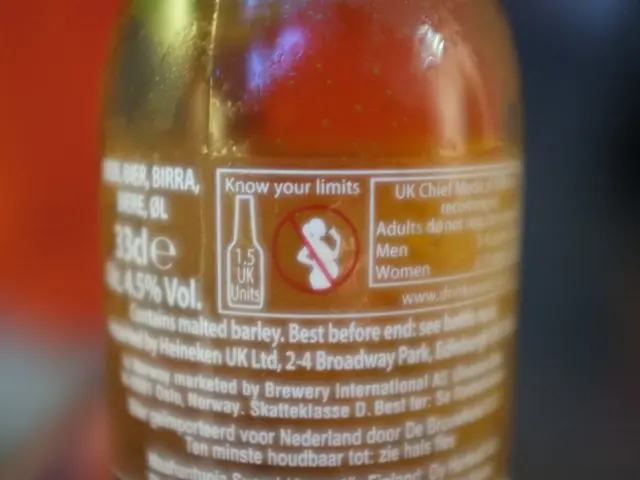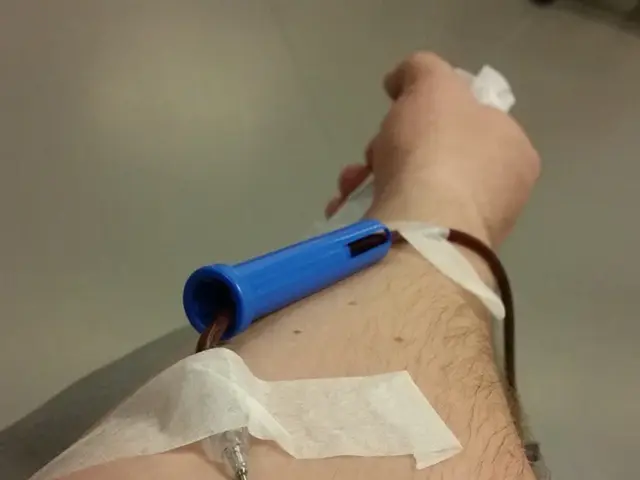Intriguing Advancements in CRISPR: Unraveling the Achievements of Caszyme's CEO, Dr. Monika Paule
Straight Talkin' with Caszyme: A Bold Biotech Tale
In the world of brave biotech breakthroughs, the saga of Dr. Monika Paule, CEO and co-founder of Caszyme, is one for the history books. Based in Lithuania, Caszyme is a groundbreaking biotech company shaking up the global CRISPR gene-editing scene. With a blend of scientific legacy and entrepreneurial savvy, Paule is not just revolutionizing biotech in Lithuania but setting an example of leadership, innovation, and resilience in an industry often dominated by the boys' club.
From the lab to the boardroom
Caszyme's roots are deeply planted in research, blossoming from the minds of distinguished Lithuanian scientists Professor Virginijus Siksnys and Dr. Giedrius Gasiunas. These brilliant minds were among the first to demonstrate programmable DNA editing using CRISPR systems. CRISPR, short for clustered regularly interspaced short palindromic repeats, is a natural genetic system found in bacteria, serving as a kind of immune defense against viruses. Scientists have adapted this system to create CRISPR-Cas gene-editing technology, providing the ability for precise and targeted changes to DNA in plants, animals, and humans.
Realizing the revolutionary potential of their discovery beyond academia, Paule and her fellow Caszyme founders decided to bring this technology to the masses, founding Caszyme to commercialize their groundbreaking research.
The CRISPR mission
With Paule's unique business-savvy and scientific background, the team at Caszyme set their sights on transforming the theory of CRISPR into tangible, life-altering products. Their mission is to develop and provide cutting-edge CRISPR solutions for various applications, including therapeutics, diagnostics, agriculture, and industrial biotechnology. Caszyme specializes in CRISPR nucleases, mRNA synthesis and optimization, protein evolution, and the development of customized gene-editing tools.
Mixing business with biotech
Though her academic background lies in economics and management, Paule's journey into the world of biotech feels fitting rather than foreign. "Both my parents are biochemists, so science was always a part of my life," she says. her eclectic resume includes stints at Johnson & Johnson and roles in biotech firms, as well as heading the IP Management and Commercialization Office at Vilnius University. It was these experiences that brought her into the world of life sciences organically.
"Biotech didn't feel foreign," she adds. "It felt like coming home, with a business toolkit in hand."
Navigating the leadership landscape
As a woman leading a biotech company, Paule is candid about the hurdles. "Proving yourself as a female CEO isn't a walk in the park," she notes. Despite the progress being made, gender-related and cultural barriers still exist in many corners of the industry. But Paule sees this challenge as part of a broader mission. "The increasing number of women in executive roles is empowering. It sends a message to young women that they, too, belong in this field."
At Caszyme, that belief is embodied, not just spoken - evident in the company's strong representation of women in leadership and research teams.
Making CRISPR plain and simple
If you're new to gene editing, Paule breaks it down in a way that's easy to grasp. "CRISPR is like a pair of molecular scissors that can cut and modify DNA with precision," she says. This precision is what makes CRISPR so transformative, offering the possibility of treating genetic disorders, improving agricultural resilience, and more.
Caszyme is pushing the field forward through its proprietary Cas12l nuclease platform, which Paule describes as central to their efforts in therapeutics and diagnostics. "We tailor high-quality CRISPR solutions for various industries - from healthcare to sustainability," she explains.
Who Caszyme benefits
Caszyme operates behind the scenes, partnering with major life sciences companies and emerging startups alike. "We mainly serve corporate clients, but the ultimate goal is end-user benefit - patients, farmers, communities," says Paule. Whether it's enabling therapies for eye diseases or developing crops that thrive in harsh climates, Caszyme's work fuels real-world solutions.
Setting the pace in Lithuania and beyond
Caszyme is more than a local success story. It's a global contender in a highly competitive space, especially with big names in the U.S. and Asia. But Lithuania's rapidly maturing life sciences ecosystem, nurtured by exceptional scientific talent, provides a strong foundation for growth.
"We were early movers in CRISPR, not just in Lithuania, but internationally," Paule notes. "That scientific credibility remains our core strength."
Straddling the line between regulation and progress
Operating under the European Union's stringent regulatory framework, Caszyme navigates one of the world's most cautious landscapes for gene editing. "It's tough, especially in agriculture and therapeutics," Paule acknowledges. Yet she remains optimistic that ongoing EU-level dialogue will lead to a modernization of the framework, balancing innovation and safety.
Diagnostics and the road ahead
Caszyme is deeply invested in the future of diagnostics and advanced therapies. "Diagnostics is about speed and accuracy. Therapies are about better tools and compatible delivery systems," Paule says. She believes that the convergence of traditional biology with AI and data science is accelerating progress in both domains.
Affordability and accessibility remain top priorities. "Innovation for innovation's sake isn't good enough. The technology has to reach people and lead to tangible outcomes," she emphasizes.
Marrying AI with biotech
At Caszyme, AI is not a replacement for lab work - it's an enhancer. "We use AI models to predict and design new gene-editing tools," Paule explains. However, these ideas are always validated in the lab. "AI gets us further, faster - but it's the combination of in silico and in vitro methods that ensures reliability."
The next decade
Looking to the future, Paule envisions Caszyme becoming a cornerstone in the global gene-editing space. "Our Cas12l nuclease has huge potential in clinical settings," she says. "We want to see it helping real patients, real diseases."
The company also aims to expand its diagnostic pipeline and keep pushing CRISPR innovation further. With a strong foundation in science, a forward-thinking approach to business, and a commitment to making biotech more inclusive and accessible, Caszyme seems poised for greatness.
"I believe the best science is collaborative, inclusive, and impactful." Paule says, concluding: "At Caszyme we are Courageous, Curious, Collaborative, Caring and Committed to Change. That's the kind of legacy we're building at Caszyme - leveraging CRISPR to empower a world that's healthier, equitable, and more sustainable."
- As a pioneer in the CRISPR gene-editing scene, Dr. Monika Paule's biotech company, Caszyme, is redefining the landscape, with its roots anchored deeply in research.
- Based in Lithuania, Caszyme is crafting cutting-edge CRISPR solutions for various industries, aiming to transform the theory into real-world products that impact healthcare, agriculture, and diagnostics.
- Paule, with her unique blend of scientific and business expertise, is striding through the business world, setting an example of female leadership and resilience in the often male-dominated biotech industry.
- Amidst the hurdles as a woman leader, Paule sees the increasing number of women in executive roles as a powerful, positive signal to budding female scientists and researchers.
- Not only is Caszyme making strides in gene editing technology, but it's also advocating for a greener, more equitable, and healthier world, surrounding itself with a diverse team of brilliant scientists and entrepreneurs.
- With its proprietary Cas12l nuclease platform at the forefront, Caszyme is carving its niche in the competitive global biotech scene, partnering with major life sciences companies and startups alike, ultimately benefiting patients, farmers, and communities.
- Embracing the seamless fusion of science and technology, Caszyme adopts AI as a tool to foster innovation, experimenting with AI models that can predict, design, and refine gene-editing tools but always validating their findings in the lab.
- As Caszyme looks to the next decade, it envisions itself becoming a cornerstone of the global gene-editing space, revolutionizing diagnostics and advanced therapies not just in Lithuania, but worldwide, fostering inclusion and sustainability as core values.








